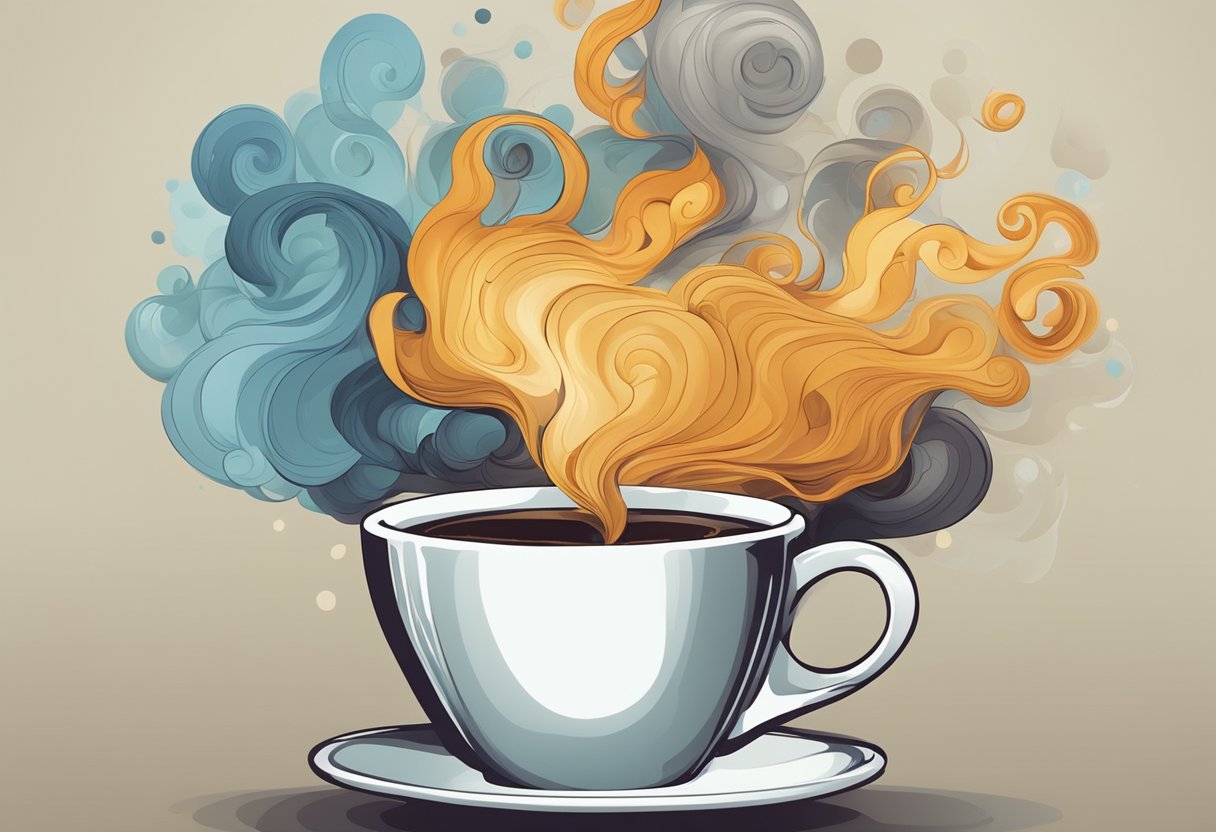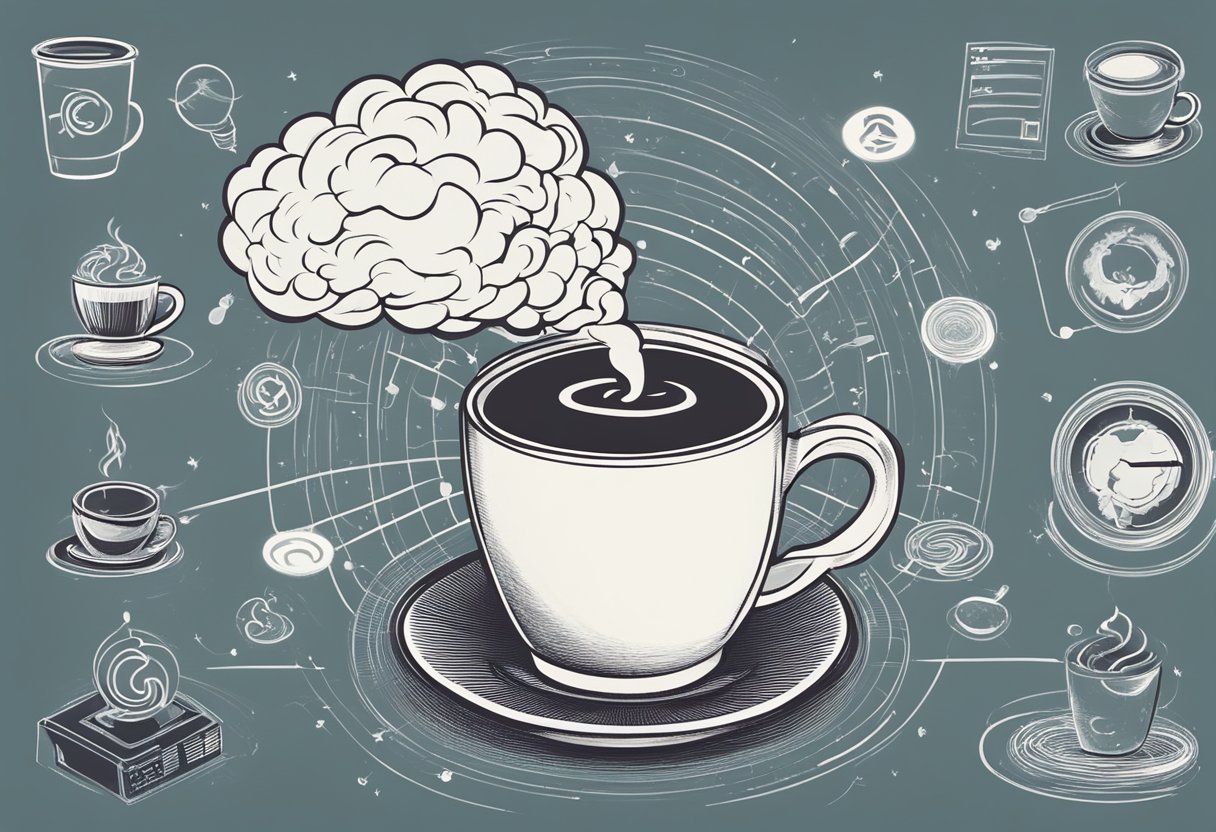1-800-982-4730
1-800-982-4730
Smoking coffee has become a topic of interest for many people, especially those who are looking for an alternative way to consume caffeine. However, the question remains: can smoking coffee make you high? While some people claim to have experienced a head rush or lightheadedness after smoking coffee, there is no scientific evidence to suggest that smoking coffee can produce a high.

Caffeine is a stimulant that is found in coffee and many other beverages. When consumed in moderate amounts, caffeine can improve focus, alertness, and mood. However, consuming too much caffeine can lead to unpleasant side effects, such as headaches, jitteriness, and insomnia. In extreme cases, caffeine overdose can even be fatal.
While smoking coffee may produce a slight buzz or head rush for some people, it is not a safe or effective way to consume caffeine. Inhaling coffee smoke can irritate the lungs and cause respiratory problems. Additionally, smoking coffee does not provide the same benefits as drinking it, such as improved focus and alertness. Overall, smoking coffee is not a recommended or safe way to consume caffeine.

Smoking coffee has become a trend among some people seeking a unique experience. The process of smoking coffee involves heating the coffee grounds and inhaling the smoke produced. Some people use a crack pipe to smoke coffee, while others use rolling papers or other smoking devices. It is important to note that smoking coffee is not the same as drinking coffee.
Smoking coffee reportedly causes a head rush or lightheadedness in some people. Some coffee smokers have reported symptoms like trouble sleeping, jitters, and increased energy in higher amounts. However, smoking coffee does not produce a high or hallucinations. The immediate effects of smoking coffee are short-lived and may not be worth the potential risks.
Smoking coffee is not a safe practice and can lead to various health risks. The smoke produced from smoking coffee contains harmful chemicals that can damage the lungs and respiratory system. Smoking coffee can also increase the risk of developing health problems like lung cancer, chronic bronchitis, and emphysema. In addition, smoking coffee can lead to addiction and dependence, similar to tobacco smoking. Long-term smoking of coffee can result in vomiting, dizziness, and other unpleasant symptoms.
It is important to note that smoking coffee does not produce a high or hallucinations. The immediate effects of smoking coffee are short-lived and may not be worth the potential risks. Smoking coffee is not a safe practice and can lead to various health risks. The smoke produced from smoking coffee contains harmful chemicals that can damage the lungs and respiratory system. Smoking coffee can also increase the risk of developing health problems like lung cancer, chronic bronchitis, and emphysema. In addition, smoking coffee can lead to addiction and dependence, similar to tobacco smoking. Long-term smoking of coffee can result in vomiting, dizziness, and other unpleasant symptoms.

Smoking coffee has become a trend among some individuals, but how does it compare to smoking tobacco? While both can be addictive and have negative health effects, the psychoactive effects of smoking coffee are different from those of smoking tobacco. Smoking coffee does not contain nicotine, which is the addictive substance in tobacco. However, smoking coffee can cause caffeine intoxication, which can lead to symptoms such as restlessness, rapid heartbeat, and muscle tremors.
On the other hand, smoking tobacco has been linked to various health problems, including lung cancer, heart disease, and stroke. Tobacco also contains many harmful chemicals, such as tar and carbon monoxide. Smoking tobacco can also be addictive due to the presence of nicotine.
Marijuana is a psychoactive drug that contains the chemical compound THC, which is responsible for its psychoactive effects. Smoking coffee does not contain THC, so the psychoactive effects of smoking coffee are different from those of smoking marijuana. Smoking marijuana can cause a range of effects, such as altered perception, impaired coordination, and increased appetite.
While smoking coffee does not have the same psychoactive effects as smoking marijuana, it can still cause caffeine intoxication, which can lead to symptoms such as restlessness, rapid heartbeat, and muscle tremors.
Vaping is the act of inhaling vapor produced by an electronic cigarette or other vaping device. Vaping devices can contain nicotine, which is addictive, and other harmful chemicals. The effects of vaping can vary depending on the device and the substance being vaped.
Smoking coffee does not involve inhaling vapor, but it can still cause caffeine intoxication, which can lead to symptoms such as restlessness, rapid heartbeat, and muscle tremors. It is important to note that smoking coffee can also have negative health effects due to the inhalation of smoke.
In conclusion, smoking coffee is not the same as smoking tobacco, marijuana, or vaping. While smoking coffee can cause caffeine intoxication, it does not contain nicotine or THC. However, smoking coffee can still have negative health effects and should be avoided.

Caffeine is a natural stimulant that is found in various plants, including coffee beans, tea leaves, and cocoa beans. It works by blocking the action of adenosine, a neurotransmitter that promotes sleep and suppresses arousal. This leads to an increase in the levels of other neurotransmitters such as dopamine and norepinephrine, which can improve mood, alertness, and cognitive function.
Caffeine can also stimulate the release of cortisol, a hormone that helps the body respond to stress. This can be beneficial in short-term situations, but chronic high cortisol levels can lead to negative health effects such as high blood pressure, impaired immune function, and increased risk of anxiety and depression.
Regular caffeine consumption can lead to tolerance, where the body becomes less responsive to the effects of caffeine. This can lead to increased consumption to achieve the same level of stimulation, which can lead to addiction. Withdrawal symptoms such as headaches, fatigue, and irritability can occur when caffeine intake is reduced or stopped.
Energy drinks, which often contain high levels of caffeine and other stimulants, have become increasingly popular in recent years. However, excessive consumption can lead to negative health effects such as increased heart rate, high blood pressure, and impaired sleep quality.
In conclusion, caffeine is a natural stimulant that can have both positive and negative effects on physical and mental health. While moderate caffeine consumption can improve cognitive function and physical performance, excessive consumption can lead to negative health effects and addiction. It is important to be aware of individual caffeine tolerance and to consume caffeine in moderation.

Smoking coffee beans to get high has become a trend among some teenagers. According to a Reddit user, smoking coffee grounds in a joint "does work," but they don't recommend doing it often, as the health effects of smoked coffee grounds have not been studied. This trend is concerning because smoking anything can be harmful to the lungs and overall health.
The online presence of smoking coffee to get high is not as prevalent as other drug trends. However, there are some YouTube videos showcasing the trend and how to do it. It is important to note that YouTube has policies against promoting harmful or dangerous content. Additionally, the trend has not been scientifically studied, and there is no evidence to support its effectiveness or safety.
Overall, it is important to understand that smoking coffee to get high is not a safe or recommended practice. It is essential to seek reliable information and avoid trends that may harm one's health.